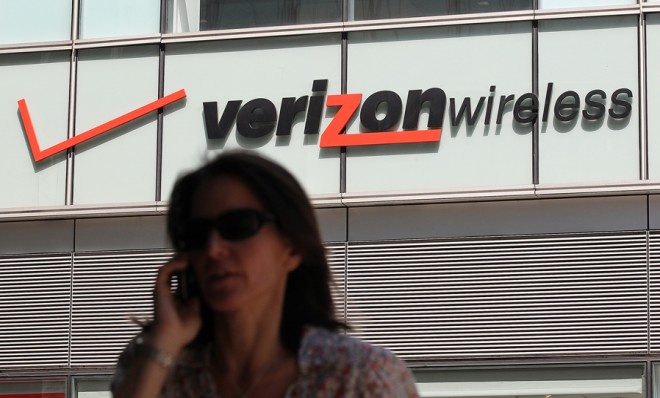Wireless merger madness: Verizon may spend $100 billion on Verizon Wireless
It would be the third-largest acquisition in history

A free daily email with the biggest news stories of the day – and the best features from TheWeek.com
You are now subscribed
Your newsletter sign-up was successful
According to various reports, Verizon Communications has hired advisers to prepare a possible $100 billion bid for the shares of Verizon Wireless that it does not already own, which are currently controlled by its British partner, Vodafone. If the deal goes through for that sum (and it may go for more), it would be the third-largest acquisition in history, according to Reuters.
The report is just the latest in a flurry of merger activity in the industry, possibly setting the stage for another round of ultra-gigantic telecommunications deals.
According to Paul Taylor and David Gelles at the Financial Times, the source of the latest push for consolidation can be partly traced — surprise, surprise — to Apple. The wireless industry's top carriers — Verizon, AT&T, Sprint, T-Mobile, Clearwire, and MetroPCS — had coexisted rather peacefully after a round of mega-megers in the early to mid-2000s. Then in 2007, Apple released the iPhone, launching a new industry of smartphones that required huge amounts of data. Since then, carriers have desperately tried to expand their networks, and mergers and acquisitions among the majors have accelerated.
The Week
Escape your echo chamber. Get the facts behind the news, plus analysis from multiple perspectives.

Sign up for The Week's Free Newsletters
From our morning news briefing to a weekly Good News Newsletter, get the best of The Week delivered directly to your inbox.
From our morning news briefing to a weekly Good News Newsletter, get the best of The Week delivered directly to your inbox.
Here, a quick ten-year history of major mergers and acquisitions in the wireless industry:
2004: AT&T and Cingular Wireless closed a $41 billion merger (a deal which Vodafone actually bid on and lost).
2005: Sprint and Nextel closed a $36 billion merger — but their networks ran on different technologies, and they were never able to fully combine infrastructures.
2009: Verizon bought Alltel for $28.1 billion.
2011: AT&T tried to buy T-Mobile, but anti-trust regulators blocked the deal.
2013: Just last week, Dish Network offered to buy Sprint for a cool $25.5 billion.
2013: On Wednesday, MetroPCS shareholders approved an acquisition of T-Mobile
Verizon and AT&T remain the two largest carriers, which means regulators have them by the bit, says the Financial Times. But both companies still seem bent on expansion. If Vodafone does agree to sell its 45 percent stake in Verizon Wireless — and if regulators don't block the deal — it could make Vodafone, with its European telecom holdings, an attractive takeover target for other telecom companies like, say, AT&T, suggest Reuters’ Soyoung Kim and Kate Holton.
So with Verizon and AT&T looking to expand, what does that mean for the rest of the top carriers? The Financial Times writes:
All these deals may just be precursors to a merger of the third and fourth largest players. Many in the industry believe that neither Sprint nor T-Mobile will be able to independently compete with Verizon and AT&T, and will be pressured to merge in the coming years. [Financial Times]
In other words, we can expect to see a lot of activity in the telecom industry over the next year.
A free daily email with the biggest news stories of the day – and the best features from TheWeek.com
Carmel Lobello is the business editor at TheWeek.com. Previously, she was an editor at DeathandTaxesMag.com.
-
 Are Hollywood ‘showmances’ losing their shine?
Are Hollywood ‘showmances’ losing their shine?In The Spotlight Teasing real-life romance between movie leads is an old Tinseltown publicity trick but modern audiences may have had enough
-
 A dreamy long weekend on the Amalfi Coast
A dreamy long weekend on the Amalfi CoastThe Week Recommends History, pasta, scenic views – this sun-drenched stretch of Italy’s southern coast has it all
-
 Can foster care overhaul stop ‘exodus’ of carers?
Can foster care overhaul stop ‘exodus’ of carers?Today’s Big Question Government announces plans to modernise ‘broken’ system and recruit more carers, but fostering remains unevenly paid and highly stressful